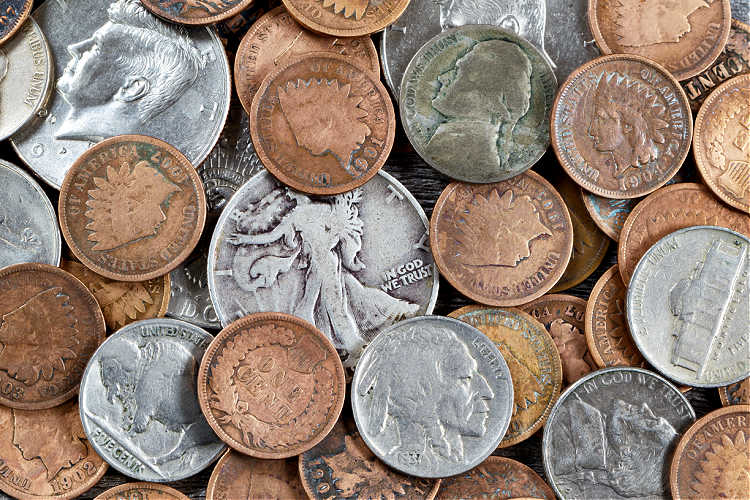Introduction (100 words): Coins have been a significant part of human history, serving as a form of currency, cultural symbols, and collectible items. Whether you are a coin collector, a numismatic enthusiast, or simply handling coins in your everyday transactions, it is important to understand coin etiquette. Proper coin handling and collecting practices not only preserve their historical and monetary value but also show respect for these small yet meaningful artifacts. In this article, we will explore the essential aspects of coin etiquette, including coin handling, storage, cleaning, and trading, to ensure the longevity and integrity of these valuable pieces of history.
I. The Basics of Coin Handling (200 words): A. Clean Hands and Surfaces: When handling coins, it is crucial to have clean hands free from oils, dirt, or chemicals that may cause damage or corrosion. Likewise, ensure that the surface where you place the coins is clean and non-abrasive to avoid scratches or other forms of wear.
B. Avoid Touching the Face: Minimize contact with the face of the coin, especially on its raised design elements. Fingerprints and oils can cause tarnishing or corrosion over time. Instead, hold coins by their edges or use soft, non-abrasive gloves when necessary.
C. Be Gentle: Never use harsh cleaning agents, abrasives, or excessive force to clean or handle coins. Scrubbing, rubbing, or polishing can result in irreversible damage to their surfaces and designs. Preserve the original condition of coins as much as possible.
II. Proper Coin Storage (200 words): A. Coin Holders and Albums: Utilize coin holders or albums designed specifically for storing coins. These protective enclosures shield coins from environmental factors, such as humidity, dust, and direct sunlight. They also allow easy organization and display of your collection.
B. Handling Rare or Valuable Coins: For rare or valuable coins, consider using individual coin capsules or plastic sleeves. These provide additional protection against physical contact and potential damage during storage or transportation.
- Handling Coins
When handling coins, it is crucial to exercise caution to avoid causing damage. Here are some guidelines to follow:
a) Clean Hands: Wash your hands thoroughly before handling coins to prevent oils, dirt, or moisture from transferring onto the coin’s surface. This can help preserve the coin’s condition.
b) Avoid Touching the Surface: Handle coins by their edges or wear soft cotton gloves to prevent direct contact with the surface. Touching the coin’s face can leave fingerprints or smudges, which may lower its value.
c) No Chemicals: Refrain from using chemicals or cleaning agents on coins unless you are a professional numismatist. Improper cleaning methods can damage the coin’s patina or remove valuable toning.
d) Flat Surface: Always place coins on a clean, flat surface when examining or photographing them. This reduces the risk of accidental drops or scratches.
- Coin Storage
Proper coin storage is essential for preserving their condition and protecting them from environmental factors. Here are some recommendations:
a) Coin Holders: Store individual coins in protective holders made from inert materials such as Mylar or PVC-free flips. These holders provide physical protection and prevent contact with harmful substances.
b) Albums and Folders: Use coin albums or folders with acid-free inserts to store multiple coins. This allows for organized and secure storage while showcasing your collection.
c) Temperature and Humidity: Maintain a stable environment for your coins by storing them in a cool, dry place. Extreme temperatures and high humidity can lead to corrosion and deterioration.
d) Avoid Airtight Containers: While airtight containers may seem ideal, they can trap moisture and potentially damage the coin. If you choose to use them, add a desiccant to absorb any moisture.
- Displaying Coins
If you wish to exhibit your coins or create an attractive display, follow these tips:
a) Display Cases: Invest in quality display cases or cabinets specifically designed for coin collections. These cases provide protection from dust, UV light, and physical damage while allowing visibility.
b) Avoid Direct Sunlight: Ultraviolet (UV) rays from sunlight can fade the colors and toning on coins. Keep your display area away from windows or use UV-resistant glass.
c) Rotate Displayed Coins: To prevent exposure to constant light, periodically rotate the coins you have on display. This ensures all coins receive equal exposure and minimizes potential damage.
d) Clear Labeling: If you label your displayed coins, use acid-free, archival-quality materials. Avoid adhesive labels directly on the coins, as they can leave residue or damage the surface.
- Interacting with Fellow Collectors
When engaging with other coin enthusiasts, it’s important to adhere to certain etiquette:
a) Respect Opinions: Numismatics is a vast field with diverse opinions. Respect the perspectives of others, even if you disagree. Healthy discussions can enhance your knowledge and broaden your horizons.
b) Sharing Knowledge: Be willing to share your knowledge and insights with fellow collectors, particularly newcomers to the hobby. Encouraging and supporting others fosters a positive community.
c) Fair Trading: When engaging in coin transactions, maintain fairness and transparency. Clearly communicate the condition and value of the coins involved and strive for mutually
C. Temperature and Humidity Control: To prevent corrosion and deterioration, store your coins in a controlled environment with stable temperature and humidity levels. Extreme temperature changes and high humidity can accelerate the aging process and compromise the condition of the coins.
III. Cleaning and Maintenance (300 words): A. Preserve the Patina: Most collectors and experts advise against cleaning coins, especially older or collectible ones. The natural patina and toning developed over time enhance their aesthetic appeal and historical significance. Only clean coins if absolutely necessary, and seek professional guidance or use specialized cleaning products designed for numismatic purposes.
B. Proper Cleaning Techniques: If you must clean a coin, follow these gentle techniques:
- Rinse: Use lukewarm distilled water to rinse off loose dirt or debris. Avoid tap water, as it may contain chemicals that could harm the coin.
- Soak: For stubborn dirt, immerse the coin in distilled water or a mild detergent solution for a brief period. Gently agitate the liquid to dislodge dirt particles.
- Air Dry: Place the cleaned coin on a soft, non-abrasive surface and allow it to air dry naturally. Do not use heat or direct sunlight, as they may cause damage.
C. Professional Conservation: For valuable or ancient coins requiring more intricate cleaning or restoration, consult a professional coin conservationist or a reputable coin grading service. These experts possess the necessary knowledge and techniques to preserve coins while maintaining their authenticity and value.
IV. Coin Trading and Transactions (200 words): A. Be Informed: When engaging in coin trading or transactions, educate yourself about the coins’ market value, rarity, and condition. Familiarize yourself with



